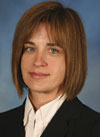New Sick Pay Ordinance May Lead to Rejuvenation of Milwaukee Equal Rights Commission
 The Milwaukee Journal-Sentinel has the scoop:
The Milwaukee Journal-Sentinel has the scoop:
Milwaukee’s dormant Equal Rights Commission could be back in business early next year – just in time to enforce the city’s controversial new sick pay ordinance.
On Tuesday, the Common Council will consider legislation to reconstitute the body with a focus not only on the sick pay measure, but also on the city’s own equal rights performance and on forms of discrimination that aren’t covered by state or federal laws. If that measure is approved, Mayor Tom Barrett will nominate a slate of seven panel members for confirmation in January, mayoral aide Leslie Silletti told the council’s Judiciary & Legislation Committee last week.
The Equal Rights Commission was founded in 1991 to investigate complaints of discrimination in housing and employment.
But the commission disbanded in 2003, amid complaints that former Mayor John O. Norquist’s administration never gave the seven-member panel the resources it needed to do its job. Since then, a single staffer in the city Department of Employee Relations has been carrying out the body’s mission, investigating some complaints himself and referring others to state and federal agencies . . . .

